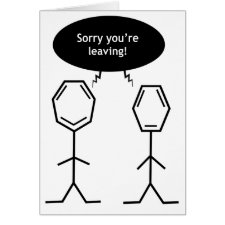
Authors: Rahiminezhad M, Shahtaheri SJ, Ganjali MR, Koohpaei AR, Forushani AR, Golbabaei F
Article Title: Synthesis of Molecularly Imprinted Polymer as A Solid Phase Sorbent for Pesticide Dursban.
Publication date: 2010
Journal: International Journal of Occupational Hygiene
Volume: 2
Issue: (3)
Page numbers: 51-56.
Alternative URL: http://journals.tums.ac.ir/upload_files/pdf/16784.pdf
Abstract: This study describes the synthesis of molecularly imprinted polymers (MIPs) by using an Anti-ChE OPs, namely dursban, as a template. Non-covalent bulk polymerization was successfully applied to synthesis different imprinted and non-imprinted polymers with MAA, MMA, AA, and 4-vpy as monomer in selected porogens (chloroform, toluene, and acetonitrile). In order to evaluate the template binding of the polymers, equilibrium binding experiments was carried out. High binding amount of imprinted polymers compared to non-imprinted polymer was due to effective imprinting or encoding of dursban template shape in the polymer matrixes. From this study, the dursban imprinted polymers prepared using acidic MAA as a functional monomer showed excellent molecular binding ability for dursban. This is because the hydrogen binding interaction between dursban and MAA may be formed between sulfur, oxygen, chlorine, and nitrogen groups of dursban and carboxyl group of MAA. The results shows the use of chloroform as porogen, with a poor hydrogen binding power, significantly affects the binding extend of the MIPs. MAA and chloroform were found to be the most suitable monomer and porogen for the preparation of appropriate dursban molecularly imprinted polymers. This study has shown the possibility of synthesizing and using molecularly imprinted polymers as sorbent for an Anti-ChE OPs.
Template and target information: dursban
Author keywords: Molecularly imprinted polymers, Dursban imprinted sorbent, Anti-ChE OPs, Non-covalent, Bulk polymerization



Join the Society for Molecular Imprinting

New items RSS feed
Sign-up for e-mail updates:
Choose between receiving an occasional newsletter or more frequent e-mail alerts.
Click here to go to the sign-up page.
Is your name elemental or peptidic? Enter your name and find out by clicking either of the buttons below!
Other products you may like:
 MIPdatabase
MIPdatabase









